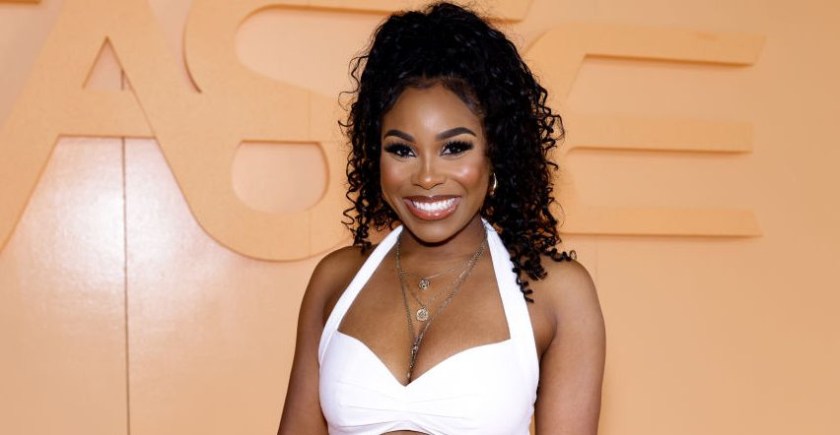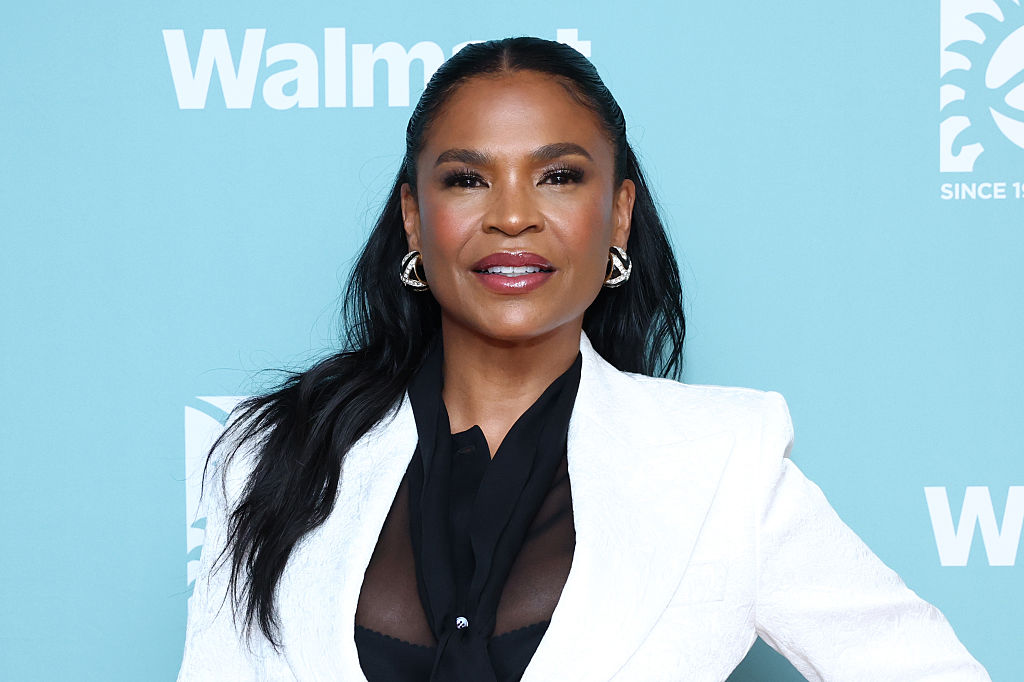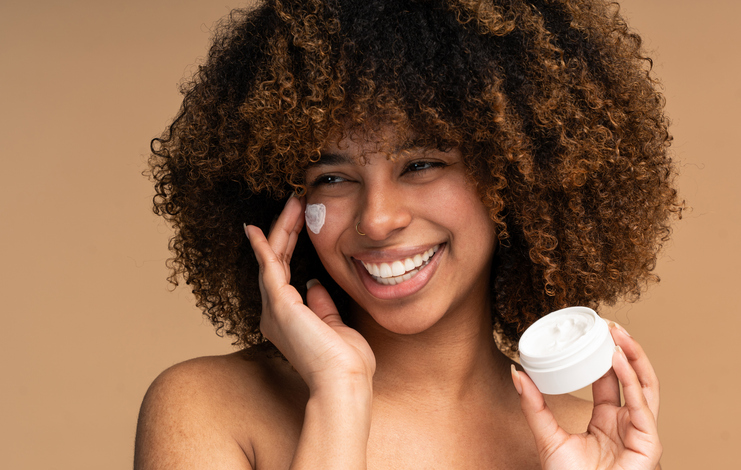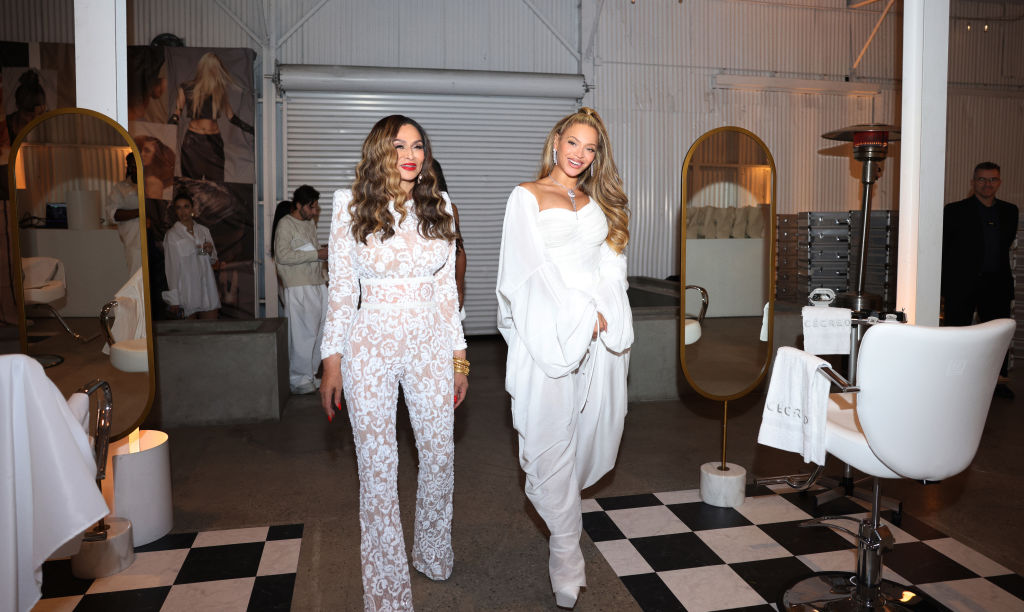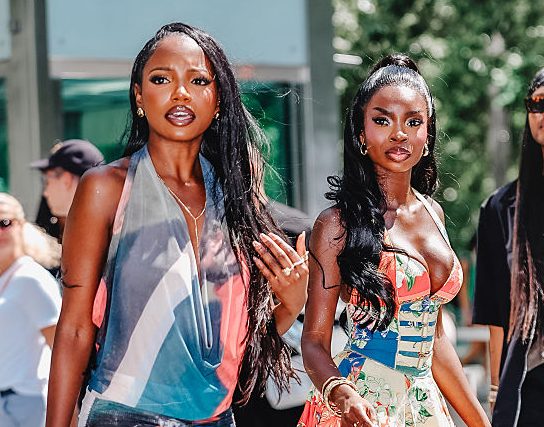A’iShah El’Shabazz Debunks 5 Myths About Faith-Based Fashion
Covered, Not Silenced — Muslim NYFW Designer A’iShah El’Shabazz Dismantles 5 Myths About Modesty [Exclusive]
At New York Fashion Week, where skin-baring looks often steal the spotlight, designer A'iShah El'Shabazz is proving that modesty can be just as powerful and even more innovative.
Share the post
Share this link via
Or copy link
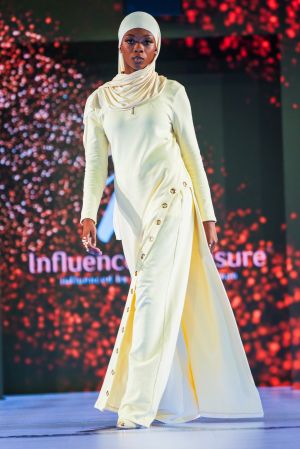
At New York Fashion Week, where skin-baring looks often steal the spotlight, designer A’iShah El’Shabazz is proving that modesty can be just as powerful and even more innovative.
When the Philadelphia-based designer behind Influence Athleisure returns to the runway on Sept. 10, she’ll be doing more than unveiling a new collection; she is pushing back against long-standing assumptions that modest and faith-inspired fashion doesn’t belong on the runway.
“As a Muslim woman, I always found myself in between comfort, modesty, and style when looking to purchase clothing or to dress, and it was rare that I actually got all three of those aspects in one garment,” El’Shabazz, 54, told MadameNoire.
RELATED CONTENT: Black Women, Black Faith — Sophia Victor’s ‘Ekklesia’ Honors The Spiritual Traditions That Raised Us: ‘My Art Was Always To Please God’ [Exclusive]
That frustration became the seed of her brand, which now takes pride in proving that modesty has a permanent seat at the fashion table.
“Fashion has long equated beauty with exposure, so bringing a different perspective kind of felt like I was speaking a different language,” she explained.
5 Myths About Faith-Based Fashion — Debunked
El’Shabazz is clear: modesty doesn’t mean sacrificing style, individuality, or creativity. Here are the misconceptions she’s determined to shatter on the NYFW stage:
1. Modesty means being invisible

Source: Erskine Issac, iVision Photo / Erskine Issac, iVision Photo
“I think people assume that covering up is about erasing yourself when in reality it’s about showing up with dignity, presence and purpose,” El’Shabazz said.
2. Outdated or stuck in tradition
“People immediately think that when you talk about modesty, you talk about it being outdated or stuck in some sort of formal tradition,” El’Shabazz added. “Modesty, in fact, changes with the individual, and I think it conforms to that individual’s personality; you can make it what you want it to be.”
3. Modesty is limiting
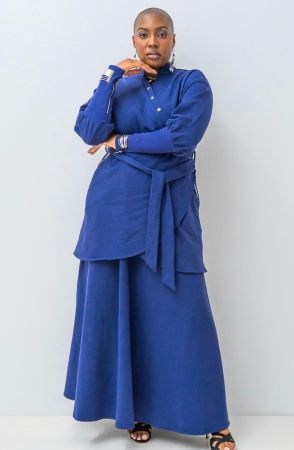
Source: Erskine Issac, iVision Photo / Erskine Issac, iVision Photo
“People believe modesty is limiting; it limits creativity when you talk about being modest, that the fashion or anything related to modern fashion isn’t creative,” El’Shabazz unveiled. “I think the opposite of that is true, I think because there is a certain amount of limitations, it breeds innovation. It makes you more creative because you have to think more outside of the box in order to accomplish particular looks that you’re going for.”
4. Modest apparel is only for religious groups
“People think modesty is only for one community or just for people who are religious, Muslim or faith-based. That’s absolutely incorrect. Modesty is universal; there are a lot of people who identify with different religious groups or don’t enjoy dressing modestly,” El’Shabazz noted.
5. Faith and fashion contradict each other
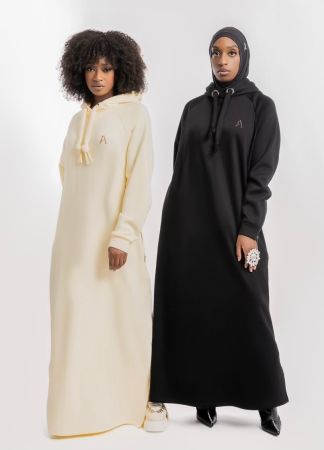
Source: Erskine Issac, iVision Photo / Erskine Issac, iVision Photo
“Faith is not the absence of beauty; it is, in fact, the presence of meaning,” El’Shabazz said. “For me, faith breeding in fashion carries intention; it is a style that is soulful, and I think that makes it even more powerful.”
Redefining the Runway
For El’Shabazz, NYFW isn’t just about clothes — it’s about shifting culture. “Fashion is not just fabric, it’s identity, it’s dignity, it’s self-expression, and bringing this vision to New York Fashion Week was important to me because I think the runway is where culture is defined.”
She admits it’s not always easy to walk into spaces where modesty is dismissed. “I think it’s challenging to walk in spaces where modesty is often viewed as the opposite, when you are the antithesis of style,” she said.
Still, she’s undeterred. “We proved that we had deserved a seat at that table,” El’Shabazz said. “From fabrics, the structures, the details of every single piece that I designed, they all speak to a truth that modesty doesn’t strip away creativity; it, in fact, demands more of it.”
RELATED CONTENT: “Covered Is The New Couture”: How The Islamic Community Is Changing The Modesty Fashion Game
Related Tags
black designers black women faith Fashion fashion designer Islam modesty muslim NYFW religion





